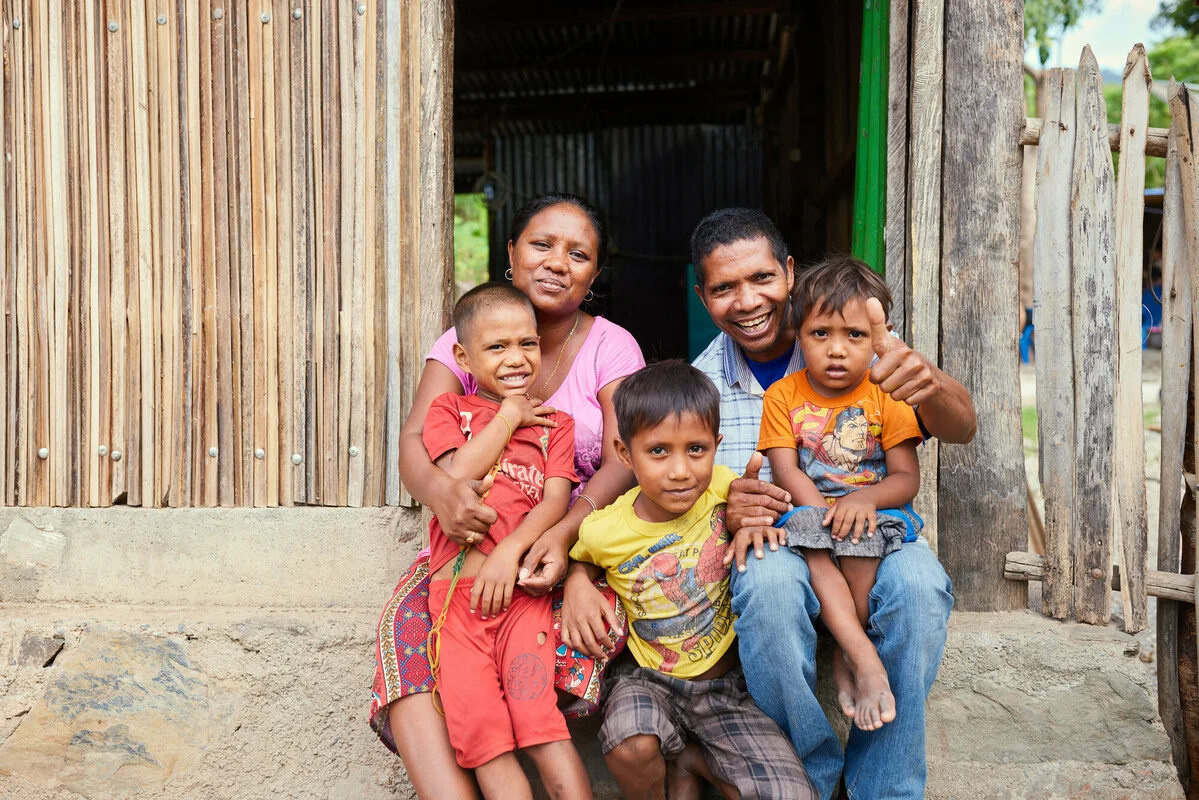Voices February 2024
This edition of Voices is filled with stories of hope, triumph and optimism. Stories that you helped make happen.
DOWNLOAD THE ISSUEIn this edition of Voices
In this edition, you’ll meet Hodan, one of Oxfam’s public health engineers in Somalia. Hodan is part of our emergency response, which is delivering life-saving fresh water and other essential supplies to people struggling with the worst drought in 40 years.
You’ll also meet Pastor Jimmy Joshua from Vanuatu, who is working hard to make sure his community understands how to prepare for disasters and how to reduce the risks they face.
And we hear from Lourdes and Zacarias in Timor-Leste, who are accessing legal support and information to help them build a case to fight for their land.
Meet the inspirational Pacific community leaders who came to Australia to meet with government ministers, Australian climate advocates to address how Australia can combat climate change in a just way.
See your donations in action in Gaza and meet Paul Chorlton, a small-business owner from Western Australia, is one of Oxfam’s most dedicated long-term supporters.
Our life-changing development programs and life-saving humanitarian efforts are made possible by the generous support of donors like you and the Australian Government Department of Foreign Affairs and Trade.
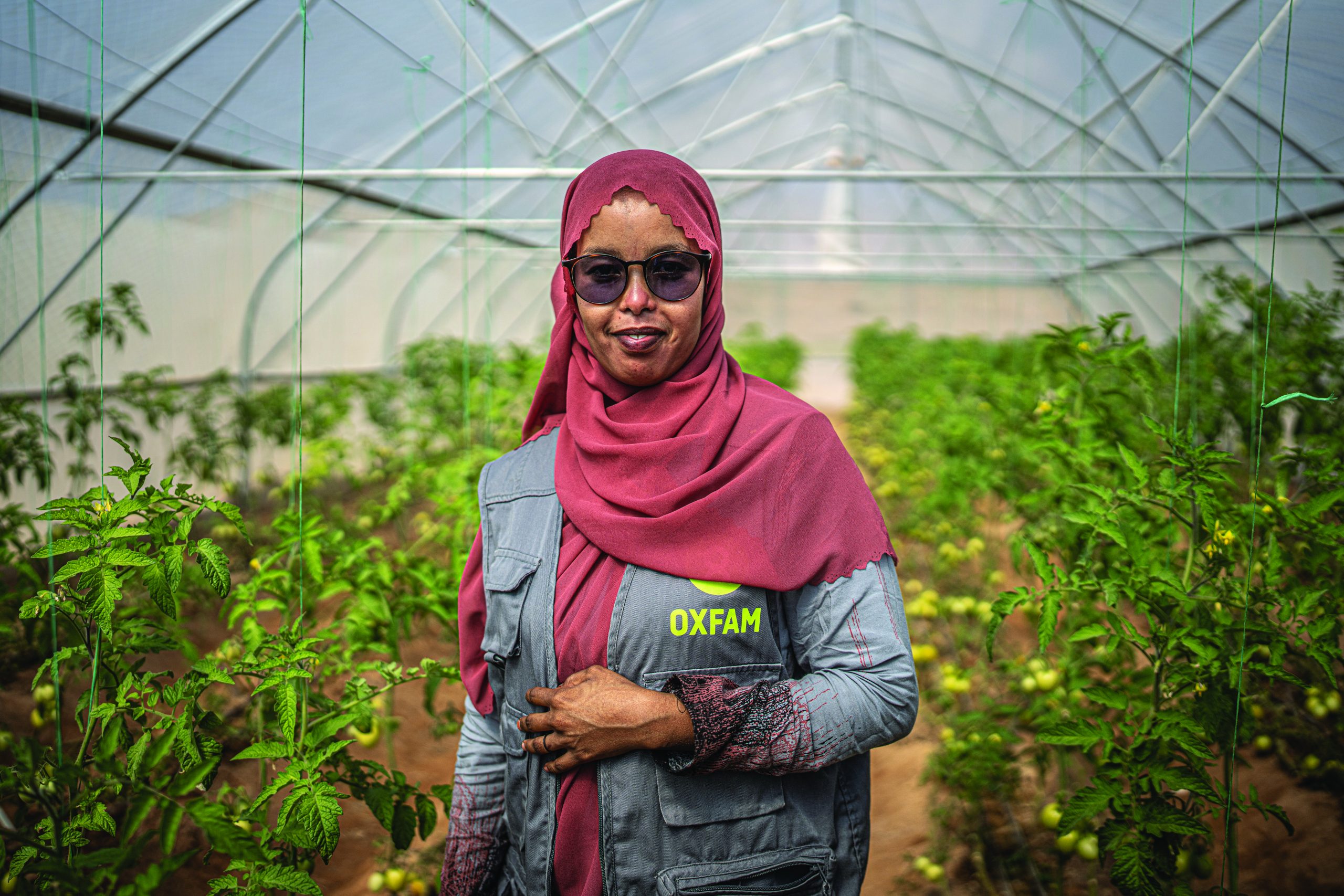
Bringing hope, thanks to you
The people of Somalia are in the grip of the worst drought in 40 years. Thanks to supporters like you, Oxfam is on the ground, working with local partner organisations to get fresh water to communities in need.
Hodan is one of our public health engineers with the Oxfam Somalia/Somaliland program. She is part of our team currently delivering a large-scale, life-saving humanitarian response prioritising water, sanitation and hygiene supplies.
“For me the most concerning thing is seeing a mother who is not able to feed her children and there is very little I can do to help that mother whose children have not had even one meal a day,” Hodan said.
“The heartbreaking reality is that we are not able to help everyone due to lack of adequate funding.”
As well as our humanitarian response, the Oxfam team is working to develop long-term solutions. Hodan knows that none of this could happen without our loyal supporters.
“Through their [Oxfam supporters] support, we have reached out to thousands of people. Imagine if we had more support, we can do more,” Hodan said.
“As a water engineer, the biggest satisfaction comes out when you see the community benefitting from the water boreholes we have constructed or rehabilitated and knowing mothers no longer have to walk for hours just to get water,” she added.
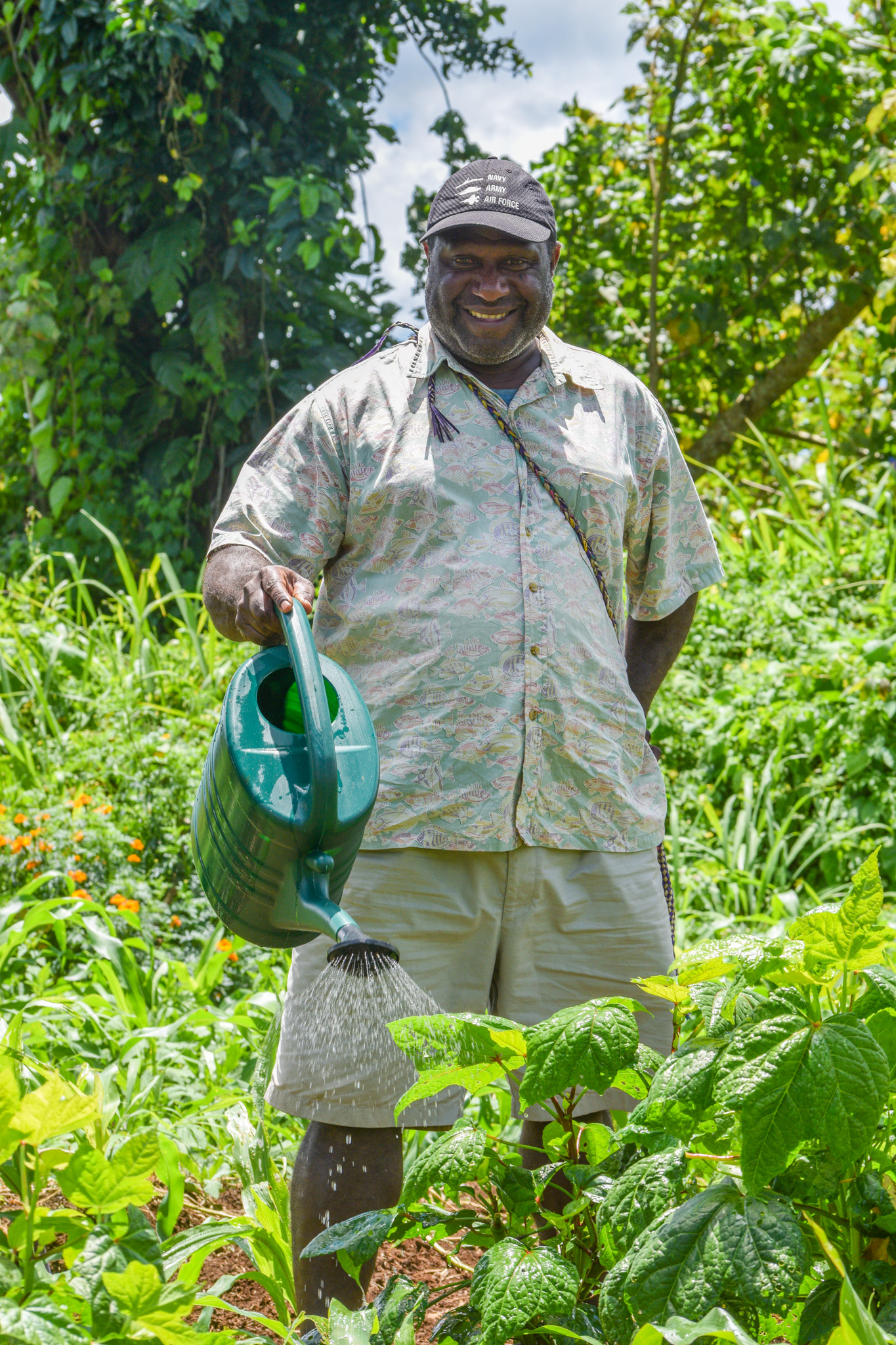
Pastor Jimmy leads the way
Pastor Jimmy Joshua is a very busy man, and a trusted member of his community in Erangorango, Vanuatu.
As well as being the local pastor, Pastor Jimmy is a farmer, and thanks to the commitment of Oxfam supporters, he attended a training program on disaster risk reduction.
He then became the chair of the Erangorango Community Disaster and Climate Change Committee. On top of all that, he established a primary school in his community, where the curriculum includes lessons on disaster risk reduction.
Disaster risk reduction is how we identify, assess and reduce the risk of disasters, and increase the resilience of communities to any disasters they might face. Climate change committees are designed to put this knowledge into the hands of local communities.
“I wanted to learn more about what the program was,” Pastor Jimmy said. “Because I knew that the sustainability of my farm and resiliency of my community depend very much on DRR [disaster risk reduction].”
The Oxfam disaster risk reduction training covered how to develop a community profile, risk and evacuation map, historical profile, seasonal calendar and community response plan, and how to set up a climate change committee.
“Oxfam paved the way for us to secure sustainable livelihoods in order to preserve our farming lifestyle,” Pastor Jimmy said.
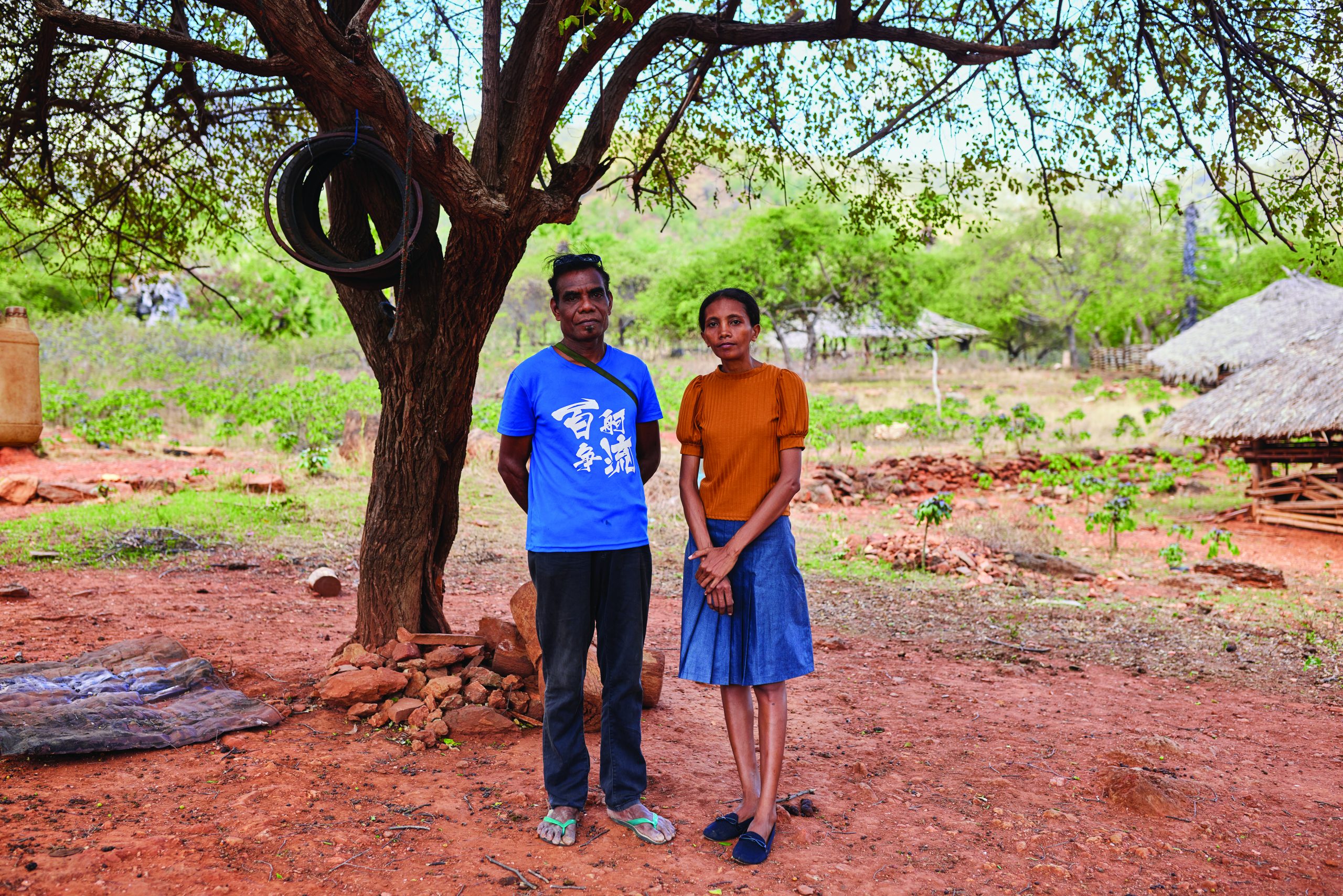
Fighting for their land
Lourdes is a volunteer preschool teacher and Zacarias is a farmer in Timor-Leste. They live on land that has been passed down over generations.
Thanks to supporters like you, they have been able to access legal support and information to help them contest a dispute over their home.
The dispute involves the national enterprise, Timor Gap, which wants to acquire 86 hectares of land, including that of Lourdes and Zacarias, to build a fuel storage centre. Oxfam’s local partners, Rede ba Rai and Juristas Advocasia, are assisting Lourdes and Zacarias to fight back and continue living on their land.
“This [is] inherited land. We use it to tend to our crops in the field, raise livestock, and these trees are important to us,” Lourdes said. “The palm tree that we all climb are important for us because our lives depend on it. Its legs can be used for fences, the body can be used for building houses. The leaves can be used to build rooves, to cover it this way. Its fruit – the kids can cut it and sell.”
Lourdes said all parts of the land were important to the local community.
“Today, I am very grateful for the people in Rede ba Rai who continue to accompany us, and I’m grateful for Oxfam who came here today, even though this place is simple. We truly appreciate it,” Lourdes said.
“Hopefully with your help in acquiring our data, moving forward, hopefully we can win what we have been defending all this time because this land is very important to us. Which is why I truly appreciate this.”
“I want to say thank you very much. Appreciate because you came here.”
Climate Speakers Tour
Three cities, 15 meetings with politicians, seven impactful events, and national news interviews – thanks to committed supporters like you.
The Safe Climate, Equal Future speakers’ tour was held in September 2023. Grassroots climate activists and community leaders from Fiji and Solomon Islands addressed the question: What needs to be done for Australia and the world to step up to the plate and combat climate change in a just way?
Your generosity made it possible for Oxfam’s inspirational Safe Climate, Equal Future campaign to bring three Pacific community leaders to Australia to meet with government ministers, Australian climate advocates and the public across events in Melbourne, Sydney and Canberra.
The speakers, Usaia Moli, Lavenia Yasikula Naivalu and Zedi Vahia Devesi, have all been personally impacted by cyclones, droughts and rising sea levels. They are determined to ensure that climate-vulnerable countries and communities are not forgotten in regional and global climate action.
Their message was clear: their communities are already facing dangerous climate change impacts like food and water shortages, unrelenting disasters, and the devastating loss of homelands, traditions and identity through no fault of their own. The speakers called on political leaders to tax big polluters and channel the revenue into preparedness and recovery efforts for Pacific Island nations.
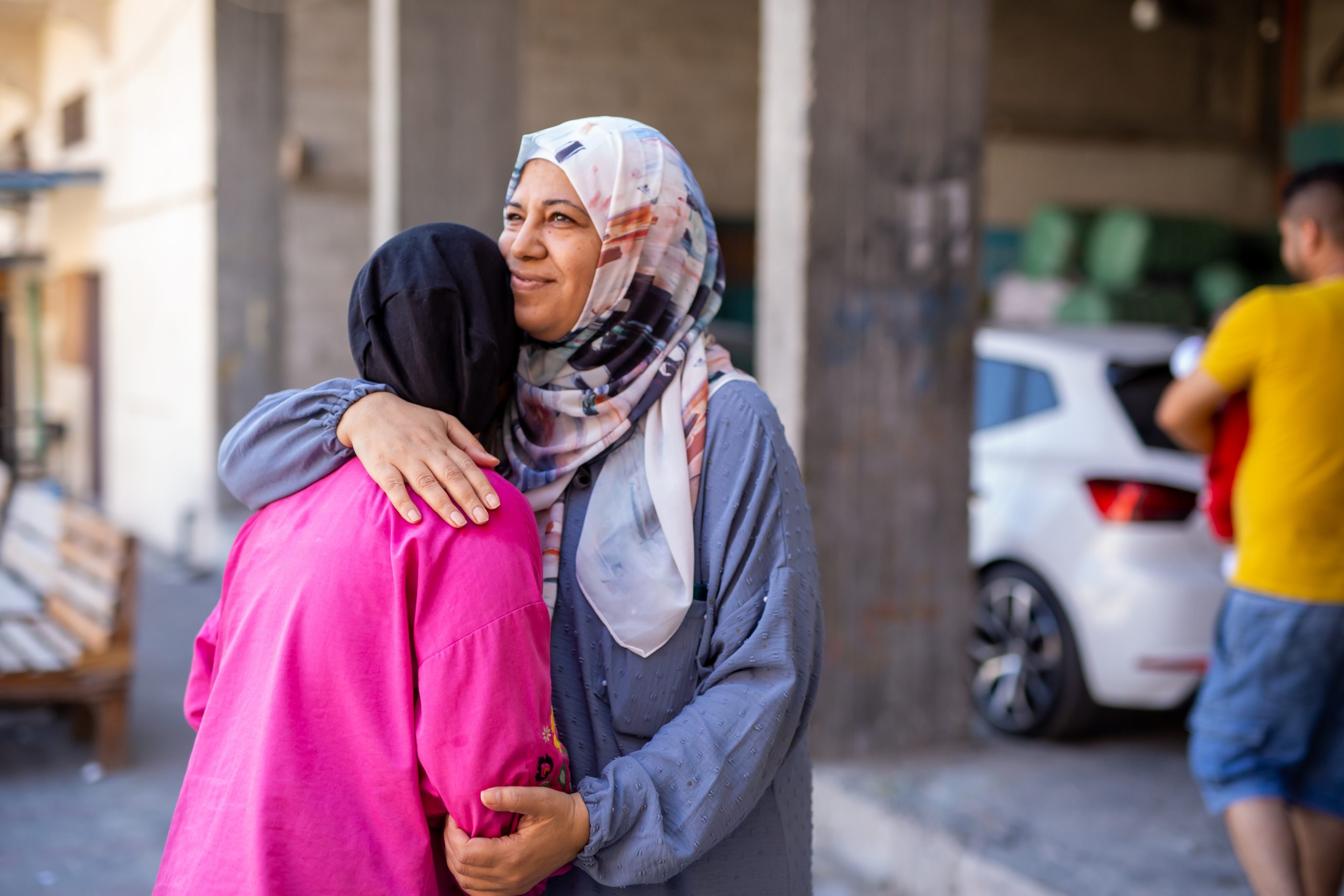
Your donations in action
When conflict escalated in Israel and Gaza in October last year, Oxfam’s generous supporters responded immediately.
Your compassion and commitment meant we could prepare humanitarian supplies and be ready to deliver them at short notice. In the weeks and months after fighting broke out, together we raised more than $500,000 through our Gaza Crisis Appeal. Thank you.
The extensive destruction means that life-saving assistance will be needed in Gaza for months and years ahead. The effects of this crisis will be long-lasting, but with your commitment, Oxfam will continue working with our partners to support the people of Gaza.
Huwaida is a dedicated employee of Oxfam’s partner organisation, the Culture and Free Thought Association, where she manages 300 people. The intensity of the crisis has left her with little time to think of her loved ones who have been killed.
“I long for the opportunity to mourn those I’ve lost. I struggle to find a moment for sorrow,” she said.
Huwaida had to evacuate Gaza when Israeli warplanes distributed leaflets telling residents in the north and central areas to seek refuge in the south.
“Having lost my husband and father in past wars, my sole hope now is not to lose any of my children.”
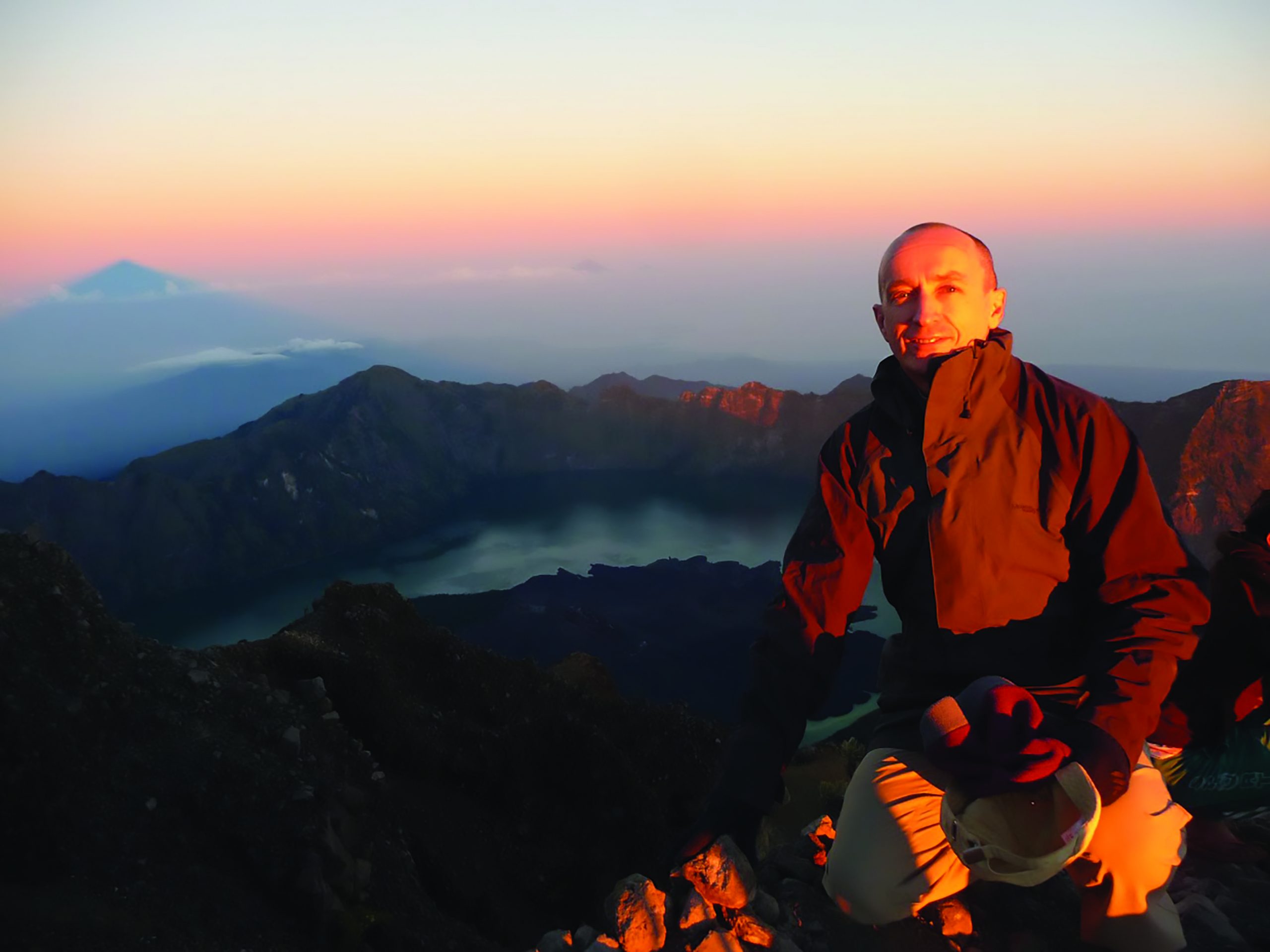
Committed to an equal world
Paul Chorlton, a small-business owner from Western Australia, is one of Oxfam’s most dedicated long-term supporters.
Back in 1994, Paul made his first donation to Oxfam when we were known as Community Aid Abroad. He chose to support Oxfam “primarily because they make a real difference”.
Paul also likes Oxfam’s model of partnering with local organisations. “I think this leads to better outcomes,” he said. “I am a great believer in advocacy and this is another area that Oxfam is very strong in.”
Since writing that first cheque for Oxfam nearly 30 years ago, Paul has continued to generously give his time, skills and donations to support our work.
“I have tried to be involved as much as I can in a more hands-on way,” Paul said. “At one stage I negotiated with my employer and worked a four-day week and then used the extra day to volunteer at the Oxfam office in Western Australia.”
Paul is a keen hiker and loves to travel, so it’s no surprise that he has managed to merge his pastimes with his passion by participating in Oxfam’s Trailwalker event and visiting Oxfam projects in Indonesia after
hiking Mt Rinjani.
“I have also been very fortunate in my travels to see the work of Oxfam in Guatemala, Cambodia, Laos, Thailand and Indonesia. It was amazing to see the difference that Oxfam makes first-hand.”
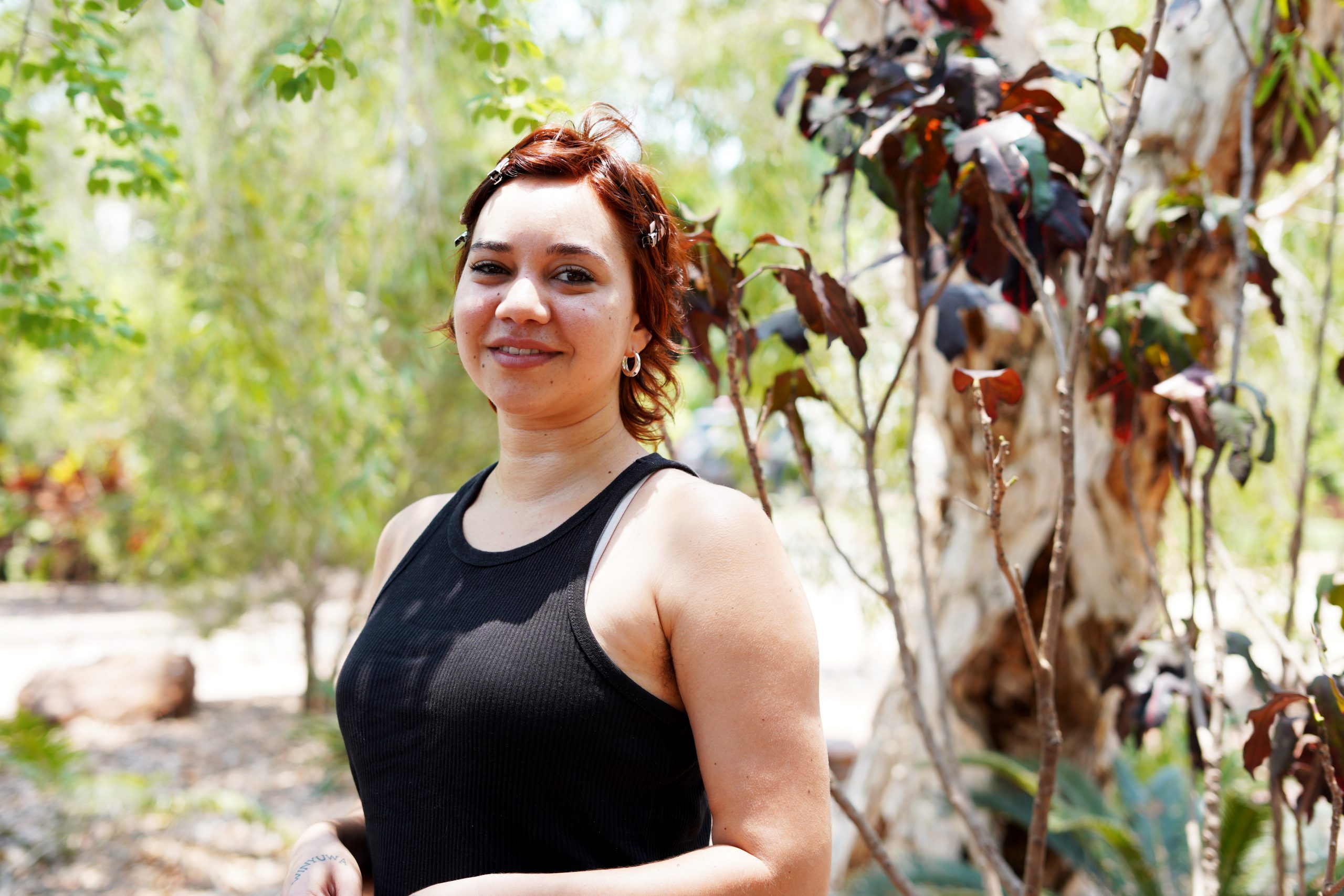
Combining culture with technology: Obby’s story
Thanks to committed supporters like you, Oxfam proudly partners with the Kimberley Aboriginal Women’s Council (KAWC). At the Council’s November 2023 Roundtable in Broome, we met Obby Bedford, who kindly shared her story with us.
I am a Bunuba-speaking Miluwindi-clan woman from Fitzroy crossing. I grew up there, left for school, and now I’m back living there. I wanted to come back and learn my language and my culture properly.
The path that I chose to kind of get myself there is… I learned how to code, so computer programming. I know that we have so much analogue knowledge, it’s already on cassettes or just other kind of digital audio, and then everything that’s been written down as well.
I knew that our next step forward was going to be to digitise our knowledge, just because of technology — that’s the way that it’s going.
That’s why I chose to learn how to code, and it doesn’t come naturally to me. It was really, really hard! But I kept doing it ‘cause I wanted to go back.
I finished my course and then I got in touch with Bunuba Dawangarri, which is my language group’s organisation. I got in touch with them and I said, “Hi, I want to turn one of our plant books into an app, so that we could all use it.”
Instead, they offered me a job to work as the apprentice to my grandmother. It was exactly what I wanted to do, even more so. I’m kind of the bridge between tech and culture.
I’m passionate about language and about culture and about people, and empowering people — I think the way to do that is through language and culture. I want more language and culture to be practised and for it to be widely spoken as well.
I was excited to be here [at KAWC Roundtable] to see what we wanted to do as a collective, to grow together, and what we all needed to grow together.
Women are the core of every single community, women are the pillars of every single community, women are the ones that get things done. If we are going to be honest and realistic, women are the caretakers and the caregivers and all that unpaid labour that goes unrecognised — without it — the communities would not run. That’s why educating women is educating a whole community.
Queer voices are very important in women’s issues. I feel like Christianity has torn apart our culture in that way, because we do have queer affirming language in Bunuba. Queerness and queer women is cultural and it is a part of Culture. I just think that it’s a part of human diversity as well, and if we’re not making space for everyone then we aren’t truly making space for the community.
I feel like homophobia is rooted in misogyny, with that being the case we need men’s sheds to actually teach, grow, and foster positive masculinity. I feel like tackling misogyny will ultimately solve homophobia as well.

